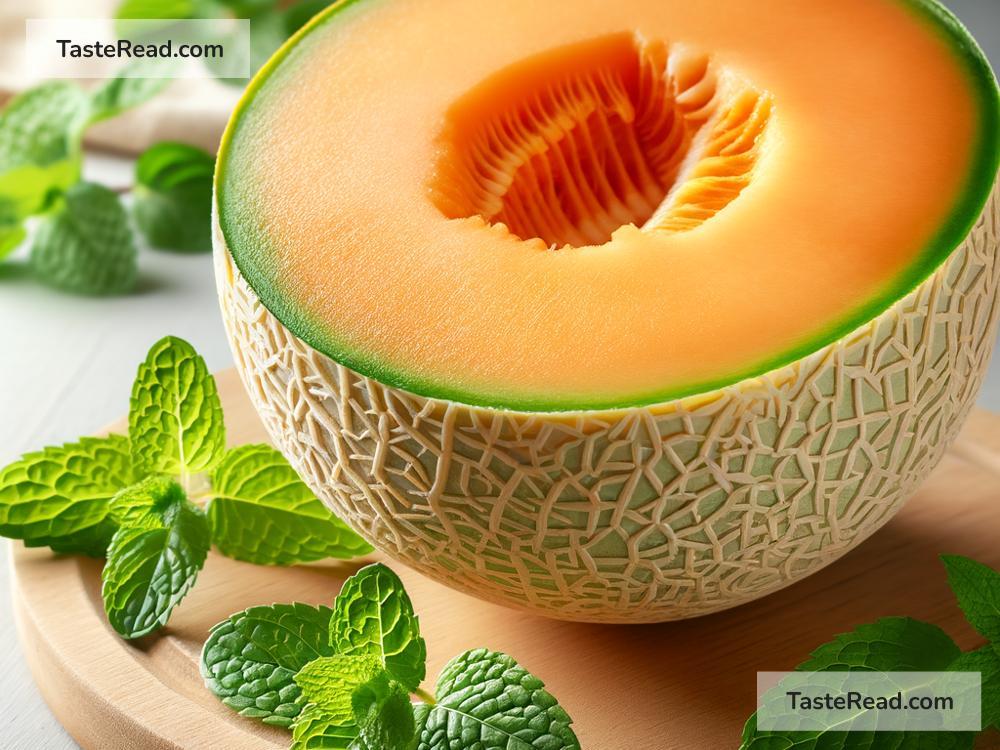Why Cantaloupes Are Sweet and Aromatic
Cantaloupes are one of the most popular fruits, loved for their sweetness and fragrant aroma. These orange-fleshed melons are juicy, refreshing, and perfect for hot summer days. But have you ever wondered why cantaloupes taste so sweet and smell so good? In this blog post, we’ll explore why cantaloupes have their signature flavor and aroma, and how you can enjoy them at their best.
What’s Inside a Cantaloupe?
Before diving into what makes cantaloupes sweet and aromatic, let’s take a closer look at their natural composition. Cantaloupes, like all fruits, are made up of water, sugar, vitamins, and other organic compounds. These components work together to create the unique characteristics we love about this fruit.
- High Sugar Content
The first reason cantaloupes taste sweet is their high sugar content. As cantaloupes ripen, they produce natural sugars such as fructose and glucose. These sugars give the fruit its sweetness. Ripening is key because immature cantaloupes don’t develop enough sugar, which is why they often taste bland.
When cantaloupes are fully ripe, their sugar content reaches its peak, making every bite satisfyingly sweet. Farmers take special care to harvest cantaloupes at the right time so that they’re sweet by the time they arrive at stores.
- Aromatic Compounds
What makes cantaloupes smell so aromatic? It’s all about the organic compounds found in the fruit. During the ripening process, cantaloupes release molecules called esters and aldehydes. These are aromatic compounds that give the fruit its pleasant, fruity scent.
Esters are responsible for the sweet-smelling aroma often associated with cantaloupes. For example, one common ester in cantaloupes is ethyl acetate, which smells fruity and fresh. These compounds are concentrated in the fruit’s flesh and skin, which is why even a whole cantaloupe can fill your kitchen with its fragrance.
Why Do Cantaloupes Ripen This Way?
Nature is fascinating, and there’s a reason why cantaloupes become sweet and aromatic as they ripen. The sweetness and aroma help attract animals to the fruit. In the wild, animals like birds and mammals eat the fruit, and then spread the seeds, allowing the plant to grow and reproduce. This natural process is how cantaloupes have adapted to ensure their survival.
Farmers and scientists have also played a role. Over generations, cantaloupe plants have been carefully bred and cultivated to enhance their sweetness and fragrance, improving the fruit we eat today.
How to Choose a Sweet and Aromatic Cantaloupe
If you want the perfect cantaloupe, you need to know how to pick one. Here are a few simple tips to help you choose a cantaloupe that is ripe, sweet, and aromatic:
-
Look for a Golden Color
A ripe cantaloupe should have a golden or beige color on its skin. Avoid melons that are green, as they are likely underripe. -
Feel the Texture
The skin of a cantaloupe, also known as the rind, should feel coarse and netted, with no smooth or soft spots. Press lightly at the stem end — if it gives slightly under pressure, it’s ripe. -
Check the Aroma
A ripe cantaloupe will smell sweet and fruity, even before you cut it open. Hold the fruit close to your nose and take a sniff. If there’s no smell, the cantaloupe is likely not ripe yet. -
Listen for a Hollow Sound
Give the melon a gentle tap. A ripe cantaloupe will sound slightly hollow when you tap its rind.
The Best Ways to Enjoy Cantaloupes
You don’t need to do much to enjoy a cantaloupe — their natural sweetness and aroma are enough to brighten your day. Here are some easy ways to enjoy this flavorful fruit:
-
Fresh and Raw
Cut the cantaloupe into slices or cubes and eat it as a refreshing snack. For an extra summer treat, chill the cantaloupe in the fridge before serving. -
Add to Smoothies
Blend cantaloupe with yogurt, ice, and other fruits like strawberries or bananas to make a delicious smoothie. -
In a Salad
Combine cantaloupe chunks with greens, feta cheese, and a drizzle of balsamic vinegar for a sweet-and-savory salad. -
Frozen Dessert
Puree cantaloupe and freeze it into ice pops or sorbet for a homemade dessert.
Fun Cantaloupe Facts
- Cantaloupes are sometimes called muskmelons because of their musky aroma.
- They’re packed with nutrients, including vitamin C, potassium, and beta-carotene, which contribute to skin health and a strong immune system.
- Cantaloupes are about 90% water, which helps you stay hydrated on hot days.
Conclusion
Cantaloupes are sweet and aromatic because of their natural sugars and organic compounds like esters. These qualities are enhanced as the fruit ripens, making cantaloupes a favorite snack for many. By learning how to pick a ripe cantaloupe, you can enjoy this delicious fruit at its best. Whether eaten fresh, blended into smoothies, or used in salads, the sweet and fragrant cantaloupe is a treat that truly captures the essence of summer!


